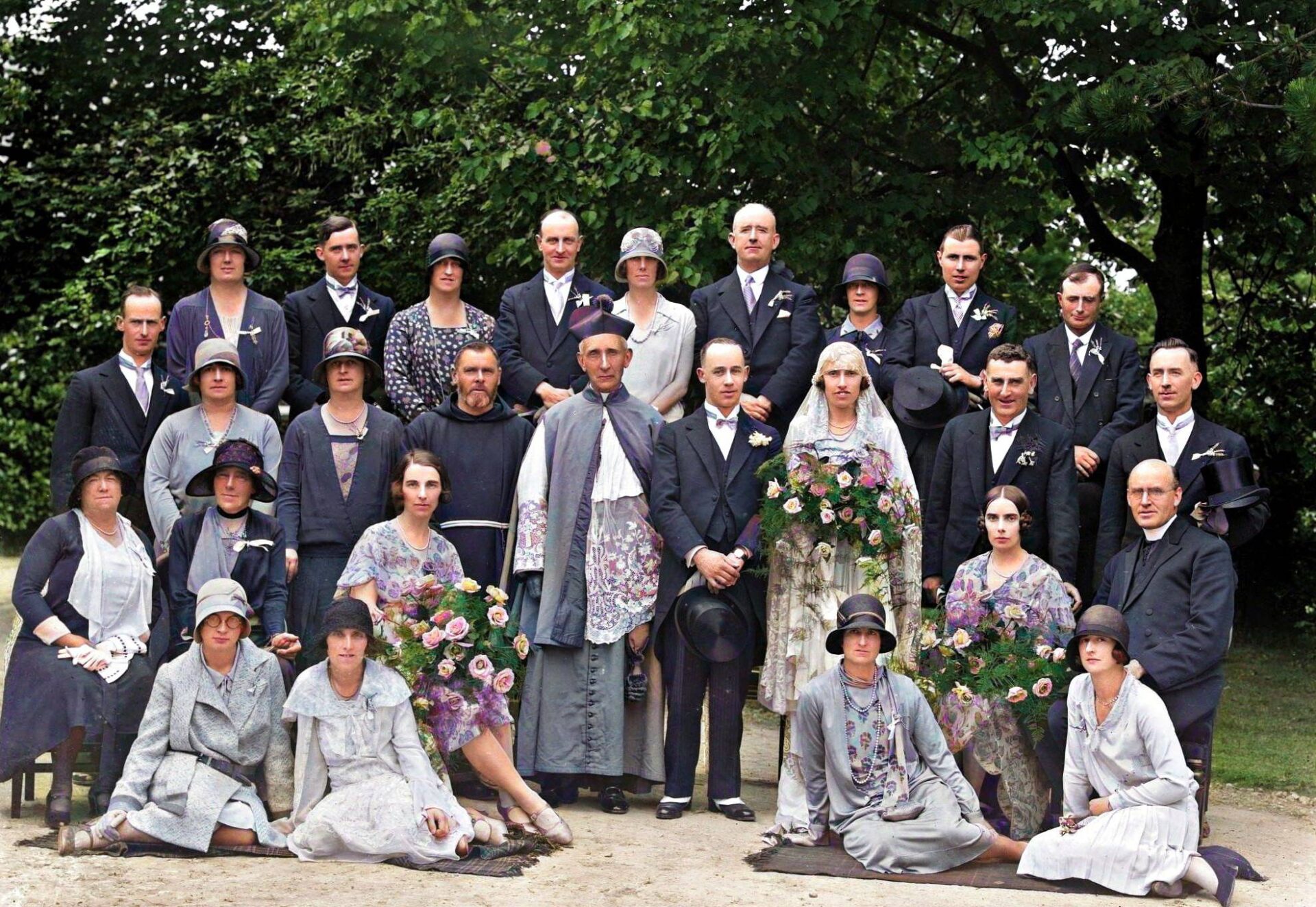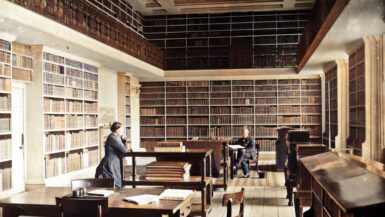Irish parish records are a treasure trove of information for genealogists and family historians, providing invaluable insights into the lives of our ancestors. With baptism, marriage, and burial records at our disposal, we can uncover the rich tapestry of our family’s history and gain a deeper understanding of the social, cultural, and religious context in which our Irish ancestors lived. This comprehensive guide will take you on a journey through Irish parish records, explaining their importance, how to locate them, and how to interpret the information they contain.
The Significance of Irish Parish Records in Genealogy Research
The Role of the Catholic Church in Ireland
The Catholic Church has played an integral role in Irish society for centuries. As a result, parish records are some of the most valuable resources for genealogists researching Irish family history. Baptism, marriage, and burial records were typically maintained by local parishes, which documented these events as part of their religious duties. The records were kept in the parish where the event took place, making them a rich source of information for anyone tracing their Irish ancestry.
The Church of Ireland
While the majority of the Irish population was Catholic, the Church of Ireland, the country’s Anglican branch, also maintained records of baptisms, marriages, and burials. These records are equally important for genealogy research and can sometimes provide additional information not found in Catholic records.
Baptism Records
The Importance of Baptism Records
Baptism records are among the most important resources for Irish genealogists. They document the christening of an individual and provide vital details about the person and their family. Baptisms were typically performed shortly after birth, making these records a valuable source for determining birth dates and locations. Additionally, baptism records can reveal information about the parents and godparents, offering insight into family connections and relationships.
Information Contained in Baptism Records
A typical Irish baptism record contains the following information:
- Date of baptism
- Child’s name
- Parents’ names (including the mother’s maiden name)
- Godparents’ names (also known as sponsors)
- Parish location
In some cases, baptism records may also include the child’s birth date, parents’ occupation, and the family’s address.
Locating Baptism Records
There are several ways to locate Irish baptism records, including:
- Online databases and resources: Websites such as the National Library of Ireland, IrishGenealogy.ie, and Ancestry.com offer searchable databases of baptism records.
- Local parish archives: Some parish records are still held in local churches or diocesan archives. Contacting the relevant parish or diocese may yield valuable information.
- National archives and libraries: The National Archives of Ireland and the Public Record Office of Northern Ireland hold microfilm copies of many parish registers.
Marriage Records
The Importance of Marriage Records
Marriage records are another essential resource for Irish genealogy research. These records document the union of two individuals and provide key details about the couple, their families, and the circumstances surrounding their marriage. Marriage records can reveal information about a couple’s socio-economic status, occupations, and family connections, which can be invaluable for tracing one’s Irish ancestry.
Information Contained in Marriage Records
A typical Irish marriage record contains the following information:
- Date of marriage
- Names of the bride and groom
- Ages of the bride and groom
- Marital status (e.g., bachelor, spinster, widow, widower)
- Occupations of the bride and groom
- Residences of the bride and groom
- Names of witnesses (often family members or close friends)
- Name of the officiating clergyman
- Parish location
In some cases, marriage records may also include the names of the bride and groom’s parents, as well as their occupations and residences.
Locating Marriage Records
To locate Irish marriage records, consider the following resources:
- Online databases and resources: Websites such as the National Library of Ireland, IrishGenealogy.ie, and Ancestry.com offer searchable databases of marriage records.
- Local parish archives: As with baptism records, some marriage records are still held in local churches or diocesan archives.
- National archives and libraries: The National Archives of Ireland and the Public Record Office of Northern Ireland hold microfilm copies of many parish marriage registers.
Burial Records
The Importance of Burial Records
Burial records are an important source of information for Irish genealogy research, providing insights into the final resting place of our ancestors. These records can reveal information about an individual’s age, cause of death, and family relationships. Furthermore, burial records can help researchers identify cemetery locations, which can lead to the discovery of additional family history information in the form of gravestone inscriptions.
Information Contained in Burial Records
A typical Irish burial record contains the following information:
- Date of burial
- Name of the deceased
- Age of the deceased
- Cause of death (sometimes)
- Residence of the deceased
- Name of the officiating clergyman
- Parish location
In some cases, burial records may also include details about the deceased’s occupation, family relationships, and other relevant information.
Locating Burial Records
To locate Irish burial records, consider the following resources:
- Online databases and resources: Websites such as the National Library of Ireland, IrishGenealogy.ie, and Ancestry.com offer searchable databases of burial records.
- Local parish archives: Some burial records are still held in local churches or diocesan archives.
- National archives and libraries: The National Archives of Ireland and the Public Record Office of Northern Ireland hold microfilm copies of many parish burial registers.
Tips for Researching Irish Parish Records
Understanding the Irish Language Barrier
Many older Irish parish records were written in the Irish language, which can pose a challenge for researchers who are not familiar with the language. To overcome this barrier, consider using online resources and language guides to help you decipher Irish-language records.
Dealing with Incomplete or Missing Records
Unfortunately, not all Irish parish records have survived the passage of time. Fires, floods, and other disasters have destroyed some records, while others were lost due to poor record-keeping practices. To fill in the gaps left by missing or incomplete records, consider using alternative sources such as:
- Civil registration records (birth, marriage, and death records)
- Census records
- Land records
- Newspapers and obituaries
- Wills and probate records
Utilizing Online Resources and Databases
In recent years, numerous online resources and databases have emerged, making it easier than ever to access Irish parish records. When researching baptism, marriage, and burial records, make use of the following online resources:
- National Library of Ireland (www.nli.ie): The NLI offers a free, searchable database of Catholic parish registers.
- IrishGenealogy.ie (www.irishgenealogy.ie): This government-sponsored website provides free access to a wide range of genealogy resources, including church records.
- Ancestry.com (www.ancestry.com): As a subscription-based service, Ancestry.com offers access to millions of Irish records, including parish registers.
- Findmypast (www.findmypast.com): Another subscription-based service, Findmypast provides access to a vast collection of Irish records, including parish registers, civil registration records, and census records.
Conclusion
Understanding baptism, marriage, and burial records in Irish parishes is a critical aspect of Irish genealogy research. By delving into these invaluable resources, you can uncover the rich history of your Irish ancestors and gain a deeper understanding of the social, cultural, and religious context in which they lived. With the tips and resources provided in this comprehensive guide, you are well-equipped to embark on your journey through Irish parish records and discover the stories that define your family’s unique history.






Leave a reply